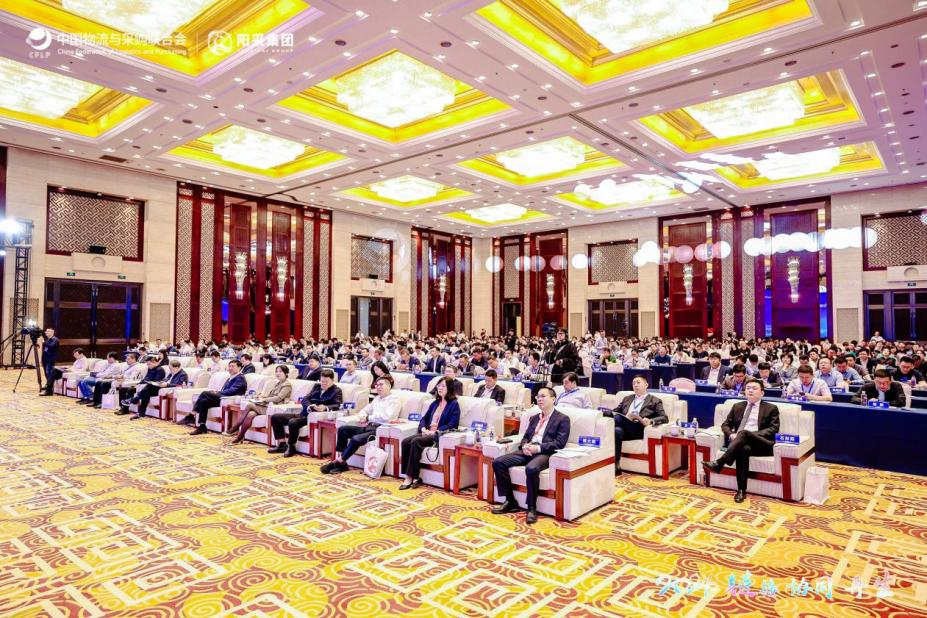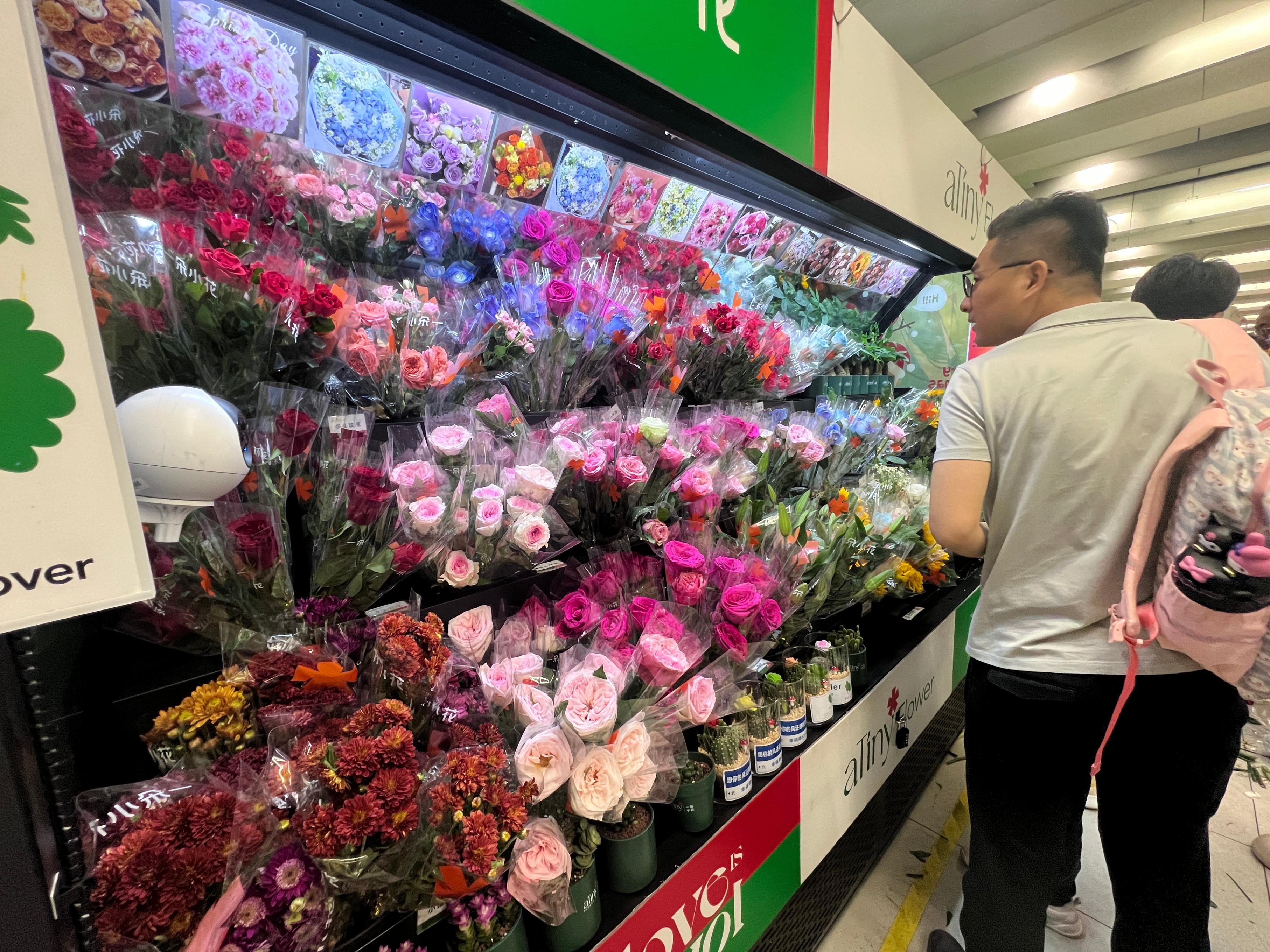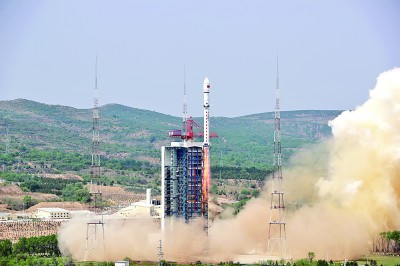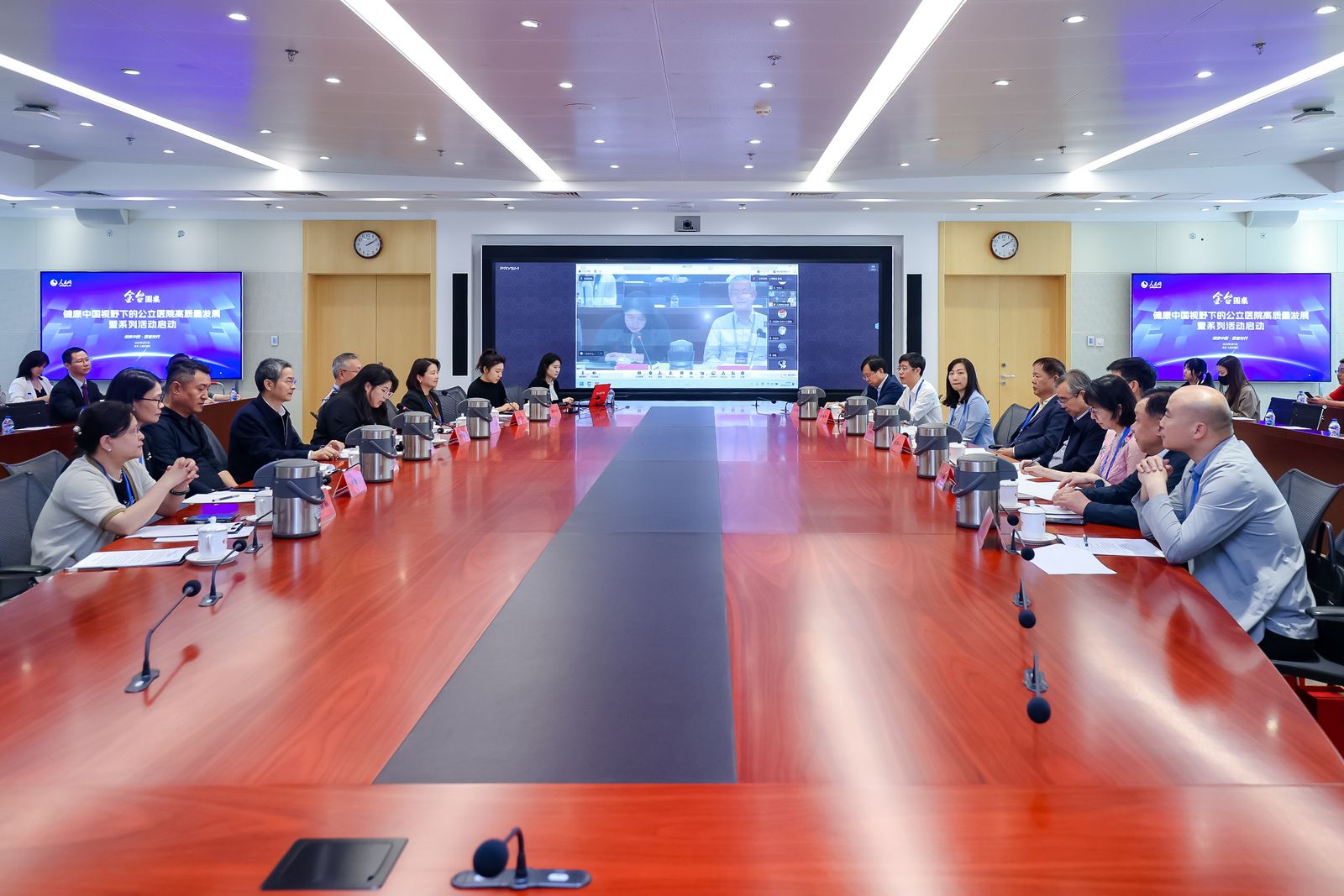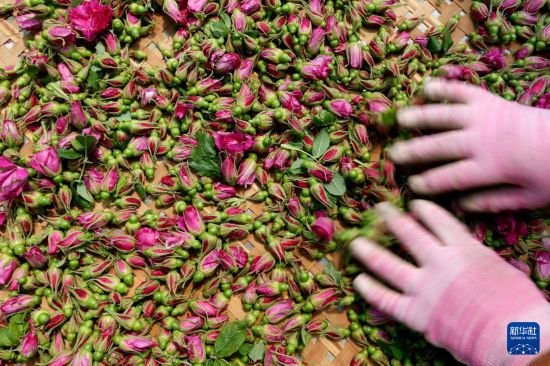
In a recent interview with Professor Mathew Tsamenyi, Executive Director of CEIBS Africa, discussions centered on China's evolving role in global trade, particularly its deepening ties with Africa.
Tsamenyi highlighted key points underscoring the significance of these relations and the potential for further collaboration between the two regions. He also emphasized China's important role in the global economy and its increasing appeal to foreign investors, especially from an African perspective.
In addition, Tsamenyi underscored the importance of China's commitment to openness and its positive impact on global economic dynamics, adding that Guangdong province, particularly Guangzhou, plays a pivotal role in fostering trade between Africa and China.
Reflecting on the Canton Fair, Tsamenyi emphasized its importance as a platform for showcasing China's industrial capabilities and facilitating networking opportunities for African entrepreneurs.
Looking forward, Tsamenyi believes that there is vast potential for future collaboration between China and Africa across various sectors.
SFC Markets and Finance: We know China has remained committed to high standards of opening up. How do you think China's commitment will influence foreign enterprises?
Mathew Tsamenyi: There is no doubt China is probably the most important economy now globally and especially from an African perspective. So we want China to be open. We want a very strong Chinese economy because that is very good for the world.
I know that China has been opening up and it also has a very strong relationship, especially across Africa. So we all want China to stay open, and they're doing a very fantastic job in terms of attractiveness to foreign investors.
China remains the largest trading partner of Africa especially the exports from China to Africa. African businesses and entrepreneurs, they are all into businesses in China. So absolutely, China is very important to the world. Take any manufacturing products you are likely to find its origin from China. And in Africa, most importantly, China remained very, very, very important.
SFC Markets and Finance: You mentioned that Africa is a major partner of China. How do you view the relationship between China and Africa, especially considering the evolution of trade relations over the years? What are your prospects for the future of this relationship?
Mathew Tsamenyi: I think that is a very good question because when you think of China-Africa relations, initially, most people would think of infrastructure, the Chinese supporting the infrastructure development in Africa. And then they think of trade. Those are the two major areas that people would now traditionally think of, but I know there are other areas beyond that.
Now, if you look at trade, there is very much increase in China's exports to Africa or Africa's imports to China. I was looking at the statistics, and in 2023, for example, I think the imports from China increased, I think it's 282 billion US dollars. What that tells you is that Africa's imports from China are growing. During the conversations between the African leaders and the Chinese authorities, I think the trade balance needs to be looked at. But of course, there are other areas, especially in terms of education, and that is where we come in as well.
SFC Markets and Finance: Besides trade, in what other areas do you think China and Africa can further enhance cooperation?
Mathew Tsamenyi: I think there are quite a few other areas. When you take education, for example, I know China provides a lot of scholarships to Africans. I think in terms of destination, China is probably the largest destination for African students because of the scholarship. China has already been supporting Africans.
And then of course, we have the China Europe International Business School, where I am the Executive Director, and it's also located in Africa, where we bring our executives and entrepreneurs from Africa to China, to expose them to Chinese business and management practices. But more importantly, we're now seeing a lot of Chinese executives and entrepreneurs. We bring them from China to Africa because they're also interested in business opportunities in Africa. Through this collaboration, we're seeing a lot of investments from Chinese entrepreneurs in Africa.
Personally, one of the areas that Africa should collaborate more with China is policy, especially in terms of poverty reduction. Because China has been able to lift a significant number of its citizens out of poverty. And this is what we need from Africa, especially through agriculture. China has very advanced technology in agriculture. I know the cooperation between China and Africa is happening in the field of agriculture as well. But we need to see more of that in agriculture and technology. And the final area is the arts and culture as well.
SFC Markets and Finance: You mentioned that an increasing number of Chinese entrepreneurs are interested in establishing businesses in Africa. What suggestions would you offer them? What opportunities do you see in this endeavor?
Mathew Tsamenyi: Absolutely. And that's why we're here. One of the roles we play as a Chinese business school in Africa is to connect Chinese entrepreneurs with African entrepreneurs. Africa is a very growing market with huge opportunities compared to other parts of the world, and there are a lot of problems that need solving. So we need Chinese businesses.
One of the things that we always want to encourage is partnership and collaboration. When Chinese entrepreneurs come to Africa, instead of trying to do their business on their own, because Africans are in those spaces already, they're trying to do their business, but Africans don't have the sort of resources that the Chinese have. Therefore, the Africans are not able to scale up. For the Africans not to see the Chinese as competitors, we always encourage collaboration and partnerships. When the Chinese entrepreneurs or businesses come in, my advice is for them to identify Africans or African businesses in the industry they're interested in, build some sort of relationship and collaboration with them.
SFC Markets and Finance: Guangdong is a major economic powerhouse in China and maintains strong relations with Africa, particularly South Africa. What is your perspective on Guangdong's development in this context?
Mathew Tsamenyi: When people in Africa say they are going to China, everybody thinks you're going to Guangzhou. Guangzhou it's almost synonymous with China in Africa. That is the province that most Africans know and is also the province that in terms of opening up of China to the world and also to Africa. It is at the forefront.
Guangzhou is, or Guangdong province is, very important and significant to Africa in terms of trade. But also, I think importantly, I'm also seeing now because quite a few of our alumni from Africa who go to Guangzhou or Guangdong Province are also now interested in building partnerships. So they have partners in China that actually manufacture products for them. They bring some of these manufacturers from China to come and set up industries with them in Africa as well. So the province is got very essential in terms of connecting Africa and China.
SFC Markets and Finance: What role does the Canton Fair play in fostering trade relations between Africa and Guangdong?
Mathew Tsamenyi: It is very much important. I know quite a few Africans who go to the Canton Fair. In fact, this year, even some of our alumni and students are currently there for the Canton Fair. Canton Fair serves as a platform to exhibit, to show to the world China's industrial capability, especially across different industries. And for Africans, it gives an opportunity to be able to sample, to see what the Chinese are doing, to see what is available to build networks and relationships. So the Fair is absolutely important.
For me, I'll love to do some mini fairs in China. I know we have in some countries in Africa where we have some sort of Chinese companies coming, the Chinese fair. But I think beyond the Canton Fair, maybe the organizers of the Canton Fair can think of probably doing some mini Canton Fairs across maybe different continents in Africa, have a Canton Fair day. So that's my thinking. But absolutely, it is a very important opportunity and platform to connect African entrepreneurs and businesses and their Chinese counterparts.
SFC Markets and Finance: We are curious, have you ever attended the Canton Fair?
Mathew Tsamenyi: I have been there once a few years back. In fact, we're even thinking now as a school because we basically represent China in Africa in terms of entrepreneurship education and executive education.
So as part of our strategy, we're thinking now of participating in the Canton Fair from next year . And to be able to provide or enhance this platform, this connectivity between African entrepreneurs and Chinese businesses.
I think from an African perspective, the Canton Fair is essential. We need a fair. That is, as I said, the future of the fair in terms of the Guangdong-African trade relationship, what I would love to see is a little bit more focus on Africa. How do I want this to happen? So that after a fair in Guangzhou, there could be a follow-up mini fair in other parts of Africa, like in West Africa, in South Africa, in North Africa, something like that. Yes, so that is my thinking.
SFC Markets and Finance: Given your experience at City University of Hong Kong and familiarity with the Guangdong-Hong Kong-Macao Greater Bay Area, how do you assess the Greater Bay Area's development?
Mathew Tsamenyi: For me, when China opened its doors to the world, is through Hong Kong, Macao, and then Guangdong. I remember those times when I was in Hong Kong, Shenzhen, Guangdong. So Guangdong used to be almost integrated. It's easy for the world to do business with China through the Guangdong-Hong Kong-Macao Greater Bay Area.
I think it's a very important area in China, in connecting China to the world. I always call it as a gateway of China to the world. And I am quite impressed and very happy to see all the developments taking place in that space in trade, in technology, in finance and leading China's opening up to the world.
SFC Markets and Finance: Do you believe that the Greater Bay Area will contribute positively to trade relations between Africa and Guangdong?
Mathew Tsamenyi: I think from an African perspective, that's why I said earlier on that when you think of China from Africa, is Guangdong or Guangzhou as a city. So the Guangdong-Hong Kong-Macao Greater Bay Area is very important for trade in Africa.
What I would probably love to see is even a lot more industries from the area setting up in Africa, moving manufacturing to Africa. Now we all know that the cost of manufacturing, especially the labor cost is increasing in China. So there is a lot of relocation of industries to other parts, mostly Southeast Asia, but Africa is very much open.
So to strengthen the collaboration between the Guangdong-Hong Kong-Macao Greater Bay Area and Africa, I would like to encourage a lot of industries that want to relocate to basically think of Africa.
SFC Markets and Finance: We assume you have made several visits to China. What differences have you noticed over time, and what are your overall impressions?
Mathew Tsamenyi: I've seen a lot. They're almost like, I think my first visit to China, I don't remember why, but it was about 10 years ago, and looking back now, I've been telling people that when you go to China, you see how China has developed over the past at least 10 years or so, 15 years that I know of.
It's just amazing. The technology, the infrastructure, the transport system, everything. I don't think any other country in the world could have achieved that within this relatively short period of time.
I don't remember exactly the date for my first visit but it was over 10 years ago. My recent visit was in January this year. And I'm coming back to China next week with almost 50 women entrepreneurs from Africa, from Ghana, Nigeria, where we will spend one week in Shanghai and then we go to Hangzhou, Alibaba for three days and then we go to Yiwu for three days.
And then following that, I have another almost like 25 executives from Ghana, Kenya and Nigeria. We will be spending one week in Shanghai. So, I do have a lot of interaction with China, and also connecting a lot of Chinese executives with African executives and also entrepreneurs from Africa and China.
SFC Markets and Finance: You have been actively promoting cooperation between African countries and China, assisting African entrepreneurs, and supporting Chinese businesses expanding into Africa. In your view, what are the biggest challenges faced in these endeavors?
Mathew Tsamenyi: Of course, to do business, number one is Africa is far away from China. And then initially you have all the cultural differences like language differences, but those are narrowing.
The differences in culture and the language are through education and that is why institutions such as CEIBS are very important in bridging the gap between China and Africa. because there are quite a number of challenges like language and culture.
But I think significantly, it's also the payment platform. And the reason why I'm saying a payment platform is that because currently most trade, especially between China and Africa, is still done through the US dollar. So my sincere hope is for RMB to become probably the dominant currency in trade between Africa and China. That would definitely make things a bit easier.
策划:于晓娜
监制:施诗
制作:蔡于恬
新媒体统筹:丁青云 曾婷芳 赖禧 曾昭发
海外运营监制: 黄燕淑
海外运营内容统筹: 黄子豪
海外运营编辑:庄欢 吴婉婕 龙李华 张伟韬
出品:南方财经全媒体集团

